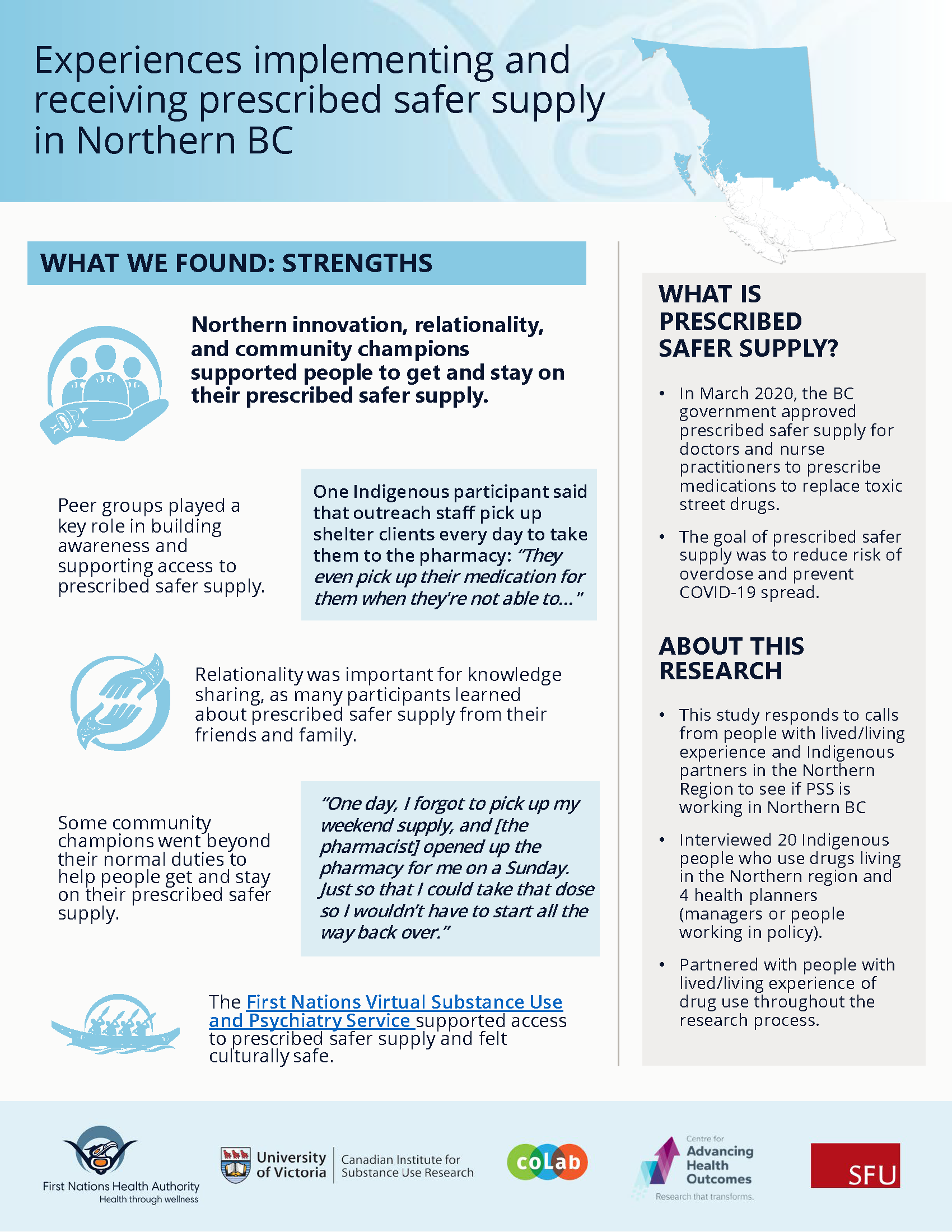The FNHA collaborates on research related to health system responses to the toxic drug crisis that disproportionately impact First Nations and Indigenous Peoples in BC. Current projects include provincial evaluations of prescribed safer supply (PSS), access to opioid agonist therapy (OAT), OAT delivery models, and the continuum of care for perinatal substance use.
These evaluations are conducted in partnership with researchers from the
Centre for Advancing Health Outcomes,
Simon Fraser University,
Canadian Institute of Substance Use Research (CISUR) at the University of Victoria,
BC Centre for Disease Control, among others.
FNHA research uses a community-based participatory approach, involving the voices of people with lived/living experience throughout project life cycles to investigate the implementation, impacts and outcomes associated with various harm reduction and health service responses to the toxic drug crisis.
All research activities adhere to the principles of OCAP®, Indigenous data governance and research ethics, and Chapter 9 of the Tri-Council Policy Statement: Research Involving the First Nations, Inuit, and Métis Peoples of Canada. Below you will find summaries and infographics related to research on this topic.
Prescribed Safer Supply
Study: Impact of Prescribed Safer Supply on Population Health across BC (Slaunwhite et al, BMJ, 2024)
Study: Experiences implementing and receiving prescribed safer supply in Northern BC (Barker et al, IJDP, 2025)

|
|
Study: The effect of opioid prescribed safer supply on the continued use of opioid agonist treatment (Min et al, JAMA, 2024)
Pregnancy and Substance Use
Study: Substance Use in Pregnancy and Availability of Hospital- and Community-based Supportive Services in BC (Piske et al, DAD, 2024)
Study: Accessibility and cultural safety in perinatal substance use care in BC (Joyce et al, JSAT, 2024).
Harm Reduction and Substance Use Care Research
Study: Opioid Agonist Therapy found to reduce death among First Nations and other residents with concurrent alcohol and opioid use disorders (Barker et al, DAD, 2023)
Study: Association between toxic drug events and brain injury (Xavier et al, SATPP, 2023)
Study: Health care providers’ Awareness of Traditional and Cultural Treatments in Vancouver (Norton et al, BMC, 2024)
Study: Talking about substance use with health care providers in Vancouver community health clinics (Pearce et al, IJDP, 2020)

